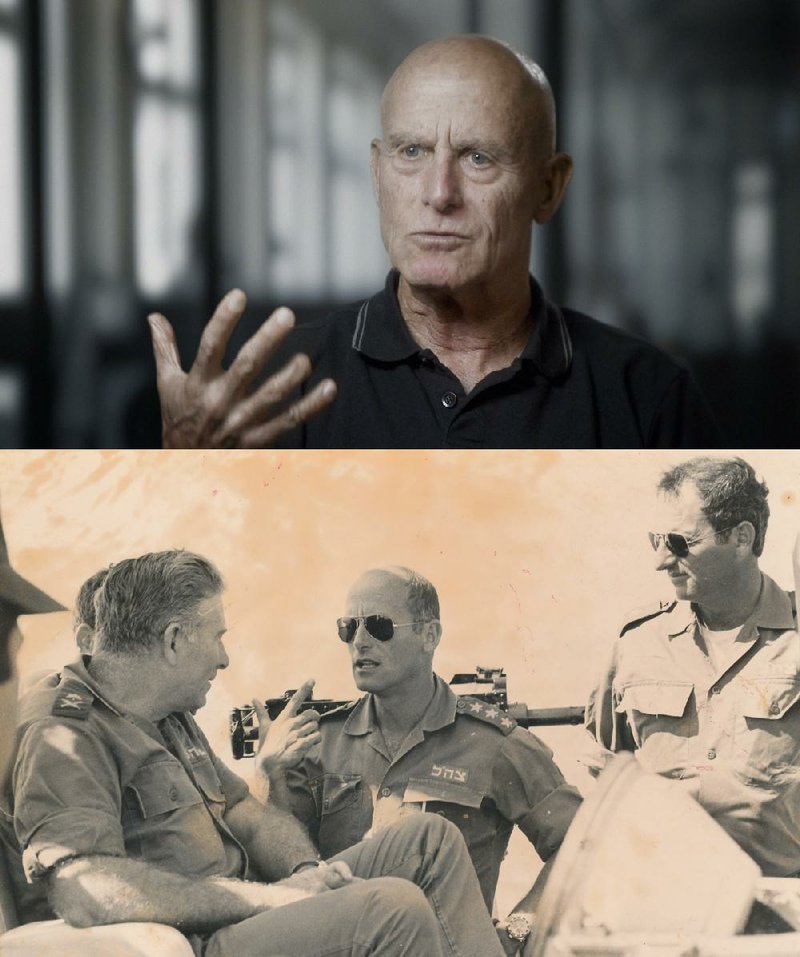Writing on Rudyard Kipling, George Orwell noted that the poet understood that the “humanitarian is always a hypocrite,” willing to accept the benefits of necessary violence while, in Kipling’s phrase, “making mock of uniforms that guard you while you sleep.” While we might concede the inevitability - if not the necessity - of collateral damage and enhanced interrogation methods, most of us would prefer not to know about the atrocities that have been committed on our behalf. (See the outcry over the depictions and accounts of the intelligence game in Zero Dark Thirty.)
Still, there are those charged with preventing the worst from happening - people who give and execute orders that will cause other people to suffer and die in the name of national security. Shin Bet is an Israeli secret service charged with internal security, which mainly means they are involved with the pre-emption and prevention of terrorist attacks inside Israeli borders. (An imperfect analogy would be to consider Shin Bet something like the Israeli analog to the FBI, albeit far more secretive - the agency’s motto loosely translates as “protect and not be seen” -while the Mossad is more like our CIA.) And given Israel’s precarious station and the vociferousness of its enemies, it’s hardly surprising that Shin Bet is known for taking draconian measures, including the targeted assassinations of suspected terrorists.
The Gatekeepers, which was nominated for a Best Foreign Language Oscar (it lost to Amour), is a riveting and sobering documentary about Shin Bet that raises important if unanswerable questions about the morality of state-sanctioned violence in the name of internal security. While first-time director Dror Moreh uses still photos, archival footage and even what appear to be brief re-enactments, the meat of the film is in the intercut interviews with six surviving former heads of the agency - Avraham Shalom (1980-1986), Yaakov Peri (1988-1994), Carmi Gillon (1994-1996), Ami Ayalon (1996-2000), Avi Dichter (2000-2005) and Yuval Diskin (2005-2011).
You might expect these men - who, after all, ordered what we would consider extra-legal executions that in some cases also cost the lives of innocents - to justify their actions as necessary to national security, yet they prove to be remarkably candid and thoughtful, capable of admitting that, in the long run, their tactics may have been short-sighted.
The gentle-seeming Shalom, who was forced to resign in the wake of a notorious 1984 incident in which two Palestinian bus hijackers were killed while in Shin Bet custody, is perhaps the most enigmatic interview. “In the war on terror, forget about morality,” he says, after admitting he gave the order to kill the hijackers (though he claims he ordered the coup de grace only after the suspects had been mortally beaten by soldiers). But he also explains how terrorism wasn’t a problem for Israel before the 1967 Six-Day War, which ended with Israel occupying the Gaza Strip, East Jerusalem and the West Bank (among other former Arab territories). Shalom at one point compares Israel to “a brutal occupation force” similar to “the Germans in World War II” (though his analogy doesn’t put the Palestinians in the same position as the Jews, but more along the lines of the Dutch or Belgians).
Moreh, whose voice can occasionally be heard on camera interrogating his subjects (in the manner of Errol Morris, whose work, especially The Fog of War, is an obvious influence), manages to spin out a story of extraordinary spy trade craft - an estimated 90 percent of planned terrorist attacks have been thwarted by Shin Bet - while never losing sight of the larger questions of how Israelis and Palestinians might someday come to an accommodation. It’s not hopeless, the Shin Bet chiefs seem to say, though there are forces on the Israeli right wing who have monkey-wrenched the peace process for ideological and possibly other reasons. Shalom admits that without the rise of terrorism in the early ’80s he might have been out of a job - terrorism was good for his business.
In the end, it’s possible to dislike some of these men, but Moreh allows them to be human. In the moment they did what they thought was their duty. And later they express their regrets, confess their doubts and have the luxury of retiring to become “old liberals.”
The Gatekeepers 90 Cast: Documentary Director: Dror Moreh Rating: PG-13 for violent content, including disturbing images Running time: 101 minutes In Hebrew and English with English subtitles
MovieStyle, Pages 31 on 04/05/2013

